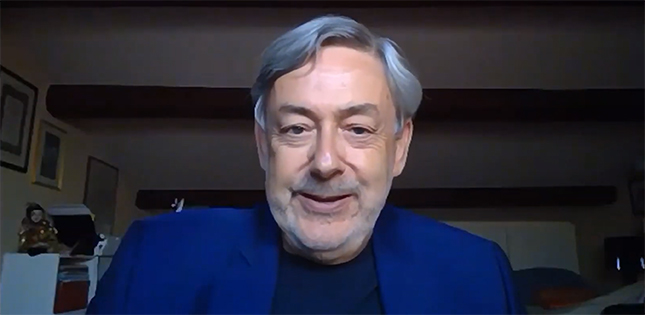Tohoku University recently hosted a special lecture by Professor David Alexander, who is widely regarded as the father of modern disaster science, and an early advocate of integrating the social and natural sciences in disaster response.
Alexander, a professor of risk and disaster reduction at University College London, spoke specifically on the importance of emergency planning and management during the COVID-19 pandemic. "Plans are useless but planning is indispensable," he said, quoting General Dwight D. Eisenhower on his approach to battles. "In other words, it's the process that matters not the documents; the process of understanding the phenomenon and the needs that it generates."
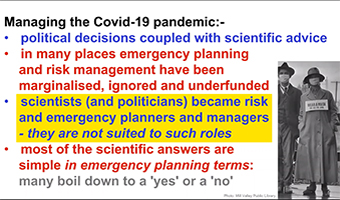
In managing the COVID-19 pandemic, countries that make sensible political decisions based on available scientific information, tend to be the most successful. However, said Alexander, there is still insufficient emphasis on emergency planning and risk management at the decision-making table. "Of course we need the scientific information. But in the end, the answers are also logistical, such as matching needs with capacities and knowing what our capacities are. And that is the preserve of the emergency planners and managers."
He pointed to the "frantic improvisation" that went on in the early weeks of the pandemic, describing it as "an indication of negligence instead of foresight." To avoid being similarly unprepared in the future, management lessons - such as the importance of planning for supplies - must be applied.
"For the next pandemic, we need to be sure that we have the arrangements worked out. If we don't have the stockpile of gowns and masks, then where exactly are we going to get them? Who is going to manufacture them quickly and how are the supply chains and distribution chains going to work? How will we get the information on who needs them and prioritise accordingly?
"These are all emergency planning questions that are eminently solvable if they are addressed in time."
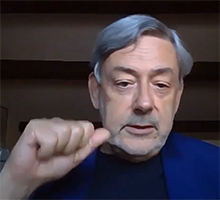
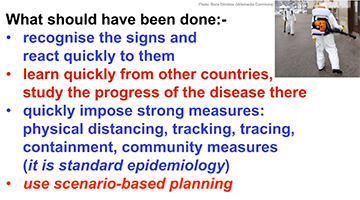
Other lessons include the need for a quicker response, more decisive actions, as well as international cooperation. "We need to build into future pandemic plans, a better ability to recognize signs, make judgements on the basis of them and institute quick reactions. In other words, limit the spread of the disease in its early stages. This means learning quickly from other countries and imposing strong measures at an early stage," said Alexander, adding that all this should be supported with open and honest communication with the public in order to build trust.
As for a vaccine, Alexander believes that the push for a cure for COVID-19 will lead to strong ethical debates, and many questions about safety, production and distribution will have to be addressed. Effective management could help prevent rich and powerful nations from monopolising vaccine stocks, he said.
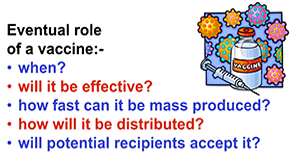
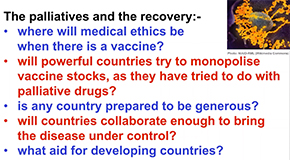
"As with all diseases, if there are people who are not vaccinated - or not willing to be vaccinated - then they can still spread the disease. What we need is true mass vaccination to get the disease under control. So that's an interesting problem we could be facing."
Alexander wrapped up his lecture with a reminder that for most countries, the socio-economic consequences of this pandemic - economic disruption, shifts in demand and supply, behavioural change - will be at least as serious as the medical ones.
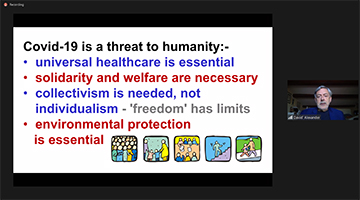
With the effects of COVID-19 expected to be felt long after a cure or a vaccine is developed, he said, policy makers would do well to work with emergency planners and managers, to help societies adapt.
In dealing with one disaster, he said, it is important not exacerbate or lose sight of on-going threats against humanity, such as social inequality, climate change and poverty.
Link:
-
Watch Professor David Alexander's full lecture here.
Contact:
Global Engagement Division, Tohoku University
Email: kokusai-k grp.tohoku.ac.jp
grp.tohoku.ac.jp

